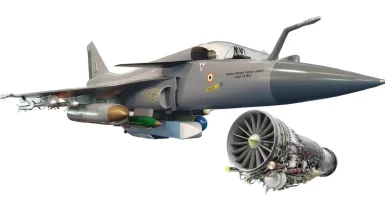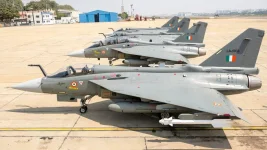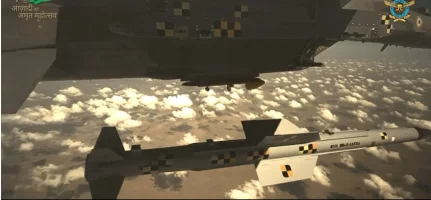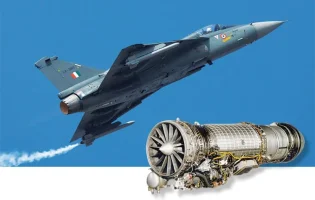- Views: 2K
- Replies: 7

Sources close to the matter have revealed that establishing a separate production line for the indigenous Light Combat Aircraft (LCA) Tejas by the private sector is not economically feasible.
This dismisses suggestions to involve a second company in manufacturing the fighter jet to expedite production. Instead, Hindustan Aeronautics Limited (HAL) will increase its production capacity to 24 jets annually, with significant involvement from the private sector in the existing program.
Currently, HAL is the lead integrator for the LCA Tejas, with over 270 Micro, Small, and Medium Enterprises (MSMEs) contributing to the project. With orders for 180 LCA aircraft beyond the initial 40, HAL is establishing a third production line to meet the increased demand. This move is expected to boost production rates to 24 aircraft per year.
However, deliveries of the LCA-Mk1A to the Indian Air Force (IAF) have faced delays, primarily due to issues with the supply of F-404 engines from General Electric. Sources indicate that only two engines are currently available, limiting HAL's ability to deliver more than two jets to the IAF this fiscal year.
Despite these challenges, integration of the Israeli radar on the LCA-Mk1A has been completed, and weapon integration is ongoing. While the integration process may take some time, the aircraft will be delivered to the IAF as planned.
In 2021, the Defence Ministry awarded HAL a ₹48,000 crore contract for 83 LCA-Mk1A fighters. The contract stipulated the delivery of three jets by February 2024, followed by 16 aircraft annually for the next five years. An additional order for 97 LCA-Mk1A jets is currently under consideration.
Meanwhile, the LCA-Mk2, a more advanced and larger variant of the Tejas, is also under development. Powered by the GE F-414 engine, the LCA-Mk2 is expected to make its first flight by October 2025, with the research and development phase concluding by December 2027. Deliveries are projected to commence in 2032, after the completion of the LCA-Mk1A order. The IAF has expressed interest in procuring around 120 LCA-Mk2 jets.
While HAL remains the primary manufacturer for the LCA program, the IAF has advocated for greater public-private partnerships to accelerate production. This approach aims to diversify production lines and enhance capacity to meet domestic requirements and potentially facilitate exports.
The government's decision to focus on HAL's production capacity, coupled with increased private sector involvement, signals a strategic approach towards strengthening India's indigenous fighter jet program. This move is expected to bolster the IAF's capabilities while fostering self-reliance in defence manufacturing.
Last edited by a moderator:




